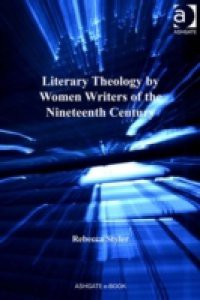Examining popular fiction, life writing, poetry and political works, Rebecca Styler explores women's contributions to theology in the nineteenth century. Female writers, Styler argues, acted as amateur theologians by use of a range of literary genres. Through these, they questioned the Christian tradition relative to contemporary concerns about political ethics, gender identity, and personal meaning. Among Styler's subjects are novels by Emma Worboise; writers of collective biography, including Anna Jameson and Clara Balfour, who study Bible women in order to address contemporary concerns about 'The Woman Question'; poetry by Anne Bronte; and political writing by Harriet Martineau and Josephine Butler.As Styler considers the ways in which each writer negotiates the gender constraints and opportunities that are available to her religious setting and literary genre, she shows the varying degrees of frustration which these writers express with the inadequacy of received religion to meet their personal and ethical needs. All find resources within that tradition, and within their experience, to reconfigure Christianity in creative, and more earth-oriented ways.

